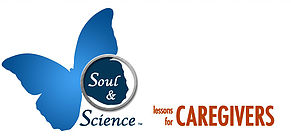TOOLKIT FOR CARE PROVIDERS

Welcome to our Care Provider Toolkit!
Sacred Art of Living Center has spent the last 25 years offering tools and teachings that provide caregivers emotional support and keep them connected with their soul and role. With today’s COVID-19 crisis, we want to offer everyone access to a collection of these essential concepts built to help mitigate burnout and compassion fatigue – all at no cost.
Every two weeks, we will post two short video lessons. One is geared toward self-care, while the second is designed for professional care providers. Along with the video we are including questions for self-assessment & personal reflection, three best practices, and a library of additional resources.
If you would like help incorporating these teachings in your organization or would like guidance in individual use, we can provide a program guide, an individual who is experienced with these materials, to assist you, also at no cost. Simply email info@sacredartofliving.org and we will arrange a 30-minute session at your convenience.
We hope you find these materials helpful in your journey of self-care and emotional wellness.
If you appreciate these resources and would like to support our effort to provide free materials to all who need it, please donate to our 501c 3 nonprofit by clicking here. Any amount will make a difference during these difficult times.

SELF-CARE TOOLS
Self-Assessment Questions:
1. “Choosing an attitude of receptivity, choosing to open our hearts wide, and to keep them open, even in the face of suffering is a courageous and powerful way of meeting the world.” – Michael Kearney, The Nest in the Stream
In your experience, how does receptivity lead to “a courageous and powerful way of meeting the world”? How can you increase receptivity and open your heart wide?
2. “When we allow ourselves to unconditionally love a painful emotion until it is gone, we are rewarded with reclaimed strength and positive energy. By turning to face what we could not face in the past, we can use our once stagnant emotional energy to strongly move our life forward in fresh creative ways.”- Shelley Klammer, MTC, RCS
Michael Kearney states “Pain is energy”. How have you seen painful emotions deplete personal energy, either in yourself or in others? How have you seen “stagnant emotional energy” transform into strength and creative expression?
Best Practices:
1. Ask: “What does being with pain mean?” – Soul & Science Lesson
Take ten minutes and journal about what is currently causing you pain. Examine how it is manifesting physically, emotionally, and spiritually. As you reflect on these issues, don’t think about how to “fix” the pain. Imagine these painful problems as house guests visiting your life. They probably won’t stay forever but will leave at the right time and leave gifts behind.
2. Ask: “How do I relate to nature?” – Soul & Science Lesson
Find a sit-spot outside and reflect on how you relate to nature. Is it a close relationship? Is it simply something pleasantly observed through a window? Is it a source of frustration? A source of joy? Determine if this nature-relationship is something you would like to grow and how to accomplish that goal.
3. “In a study conducted by graduate student Gregory Bratman of Stanford University, brain activity was tracked in volunteers as they took walks in urban and natural areas. Those who walked along the busy urban walkways had increased blood flow to their subgenual prefrontal cortex—a part of the brain associated with negative brooding. But those who walked in the quieter, greener areas had less blood flow to this area of the brain decreased—participants were happier.” – (“How Nature Can Heal Our Wounds”)
For a minimum of two weeks take a walk in a quiet, green space on a regular basis. Note your mood and stress levels. How does it shift and change in the course of your walk?
Additional Resources:
Recommended Books
Related Videos
Web Materials & Journal Articles
BURNOUT PREVENTION FOR CARE PROVIDERS
Self-Assessment Questions:
1. Thinking back to the story of Rosie, how common are Dean’s feelings in regard to “failure” in caregiving? “I felt terribly guilty, ashamed, and like a failure. ‘I haven’t helped you’.” –Dean Sharpe in the Soul & Science Lesson. Use a 1-5 scale. 1-Not at all common/5-Extremely common
How do shame and guilt add to care provider fatigue? When has guilt or shame interfered with your role as a care provider? What tools did you use to find self-forgiveness?
2. “I think the most important [awareness skill] is forgiveness: forgiveness for the way things are, forgiveness for the suffering of the world,…forgiveness that I wasn’t perfect, forgiveness for the fact that things don’t always go the way I planned they would.” ― Soul & Science Lesson
What are the necessary steps to allow self-forgiveness? How can you recognize that the pain you are feeling is a result of unresolved guilt? How do you face painful memories that contain shame? Reflect on methods that have helped you in the past. How you can share those same practices with other care providers?
Best Practices:
1. “Conflicts and transgressions seem inevitable as humans rub against each other. The sharp corners of our personalities irritate and scuff against those with whom we interact on a daily basis. But if the new science of forgiveness has proved anything, it’s that these offenses don’t need to condemn us to a life of hurt and aggravation…Through a harmony of research and practice, I trust that we can continue to foster forgiveness—and continue to study the effects scientifically—to bring health to individuals, relationships, and societies as a whole.”– Everett L. Worthington, Jr
Assess your own relationship with forgiveness by taking the Heartland Forgiveness Scale. This is available as a downloadable PDF and as an online quiz. Another option is the Transgression-Related Interpersonal Motivations Scale created by forgiveness research pioneer Michael McCullough and his colleagues. Are the results what you expected or do they surprise you? Write about your results and reflect on how they can help you set goals for self-forgiveness or the forgiveness of others.
2. “Some practices that would help include daily spiritual practice, meditation, journaling, psychotherapy, nature (ecotherapy), gratitude, dream tending, and forgiveness work.” –Soul & Science Lesson
Which of the above practices are you already incorporating into your life? Write about how they are helping you with respect to exquisite empathy or forgiveness. If you aren’t currently using any of these, what could you add as a daily or weekly practice? Record specific goals that will help you utilize these tools in your self-awareness practice.
3. “Through my research and teaching, I have found that forgiveness isn’t just wishful thinking. It’s a trainable skill.” –Fred Luskin
Become familiar with Fred Luskin’s Nine Steps to Forgiveness. Try using them the next time you have been hurt or offended by another.
- Know exactly how you feel about what happened and be able to articulate what about the situation is not OK. Then, tell a couple of trusted people about your experience.
- Make a commitment to yourself to feel better. Forgiveness is for you and no one else.
- Forgiveness does not necessarily mean reconciling with the person who upset you or condoning the action. In forgiveness, you seek the peace and understanding that come from blaming people less after they offend you and taking those offenses less personally.
- Get the right perspective on what is happening. Recognize that your primary distress is coming from the hurt feelings, thoughts, and physical upset you are suffering now, not from what offended you or hurt you two minutes—or 10 years— ago.
- At the moment you feel upset, practice stress management to soothe your body’s fight or flight response.
- Give up expecting things from your life or from other people that they do not choose to give you. Remind yourself that you can hope for health, love, friendship, and prosperity, and work hard to get them. However, these are “unenforceable rules:” you will suffer when you demand that these things occur since you do not have the power to make them happen.
- Put your energy into looking for another way to get your positive goals met than through the experience that has hurt you.
- Remember that a life well-lived is your best revenge. Instead of focusing on your wounded feelings, and thereby giving power over you to the person who caused you pain, learn to look for the love, beauty, and kindness around you. Put more energy into appreciating what you have rather than attending to what you do not have.9. Amend the way you look at your past so you remind yourself of your heroic choice to forgive.
Additional Resources:
